Are you facing a dispute that requires a formal resolution? Initiating arbitration can be a straightforward process if you have the right tools at your disposal. In this article, we'll guide you through a comprehensive letter template specifically designed for initiating arbitration proceedings. So, let's dive in and discover how to craft a compelling letter that sets the stage for a successful arbitration experience!
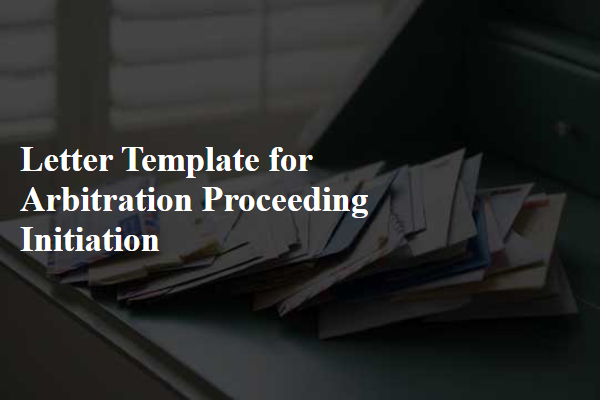
Parties Involved
The initiation of arbitration proceedings requires a clear identification of the parties involved in the dispute. In typical cases, the Claimant--originating party seeking remedy--might be a corporation, such as ABC Corporation, established in Delaware, or an individual, like John Smith, a resident of California. The Respondent--entity against whom the claim is made--could be XYZ LLC, located in New York, or Jane Doe, a business owner in Texas. Specifying the full legal names, addresses, and contact information of each party facilitates effective communication and legal documentation throughout the arbitration process. The arbitration agreement or contract reference, if applicable, should also be included, detailing the nature of the dispute and the selected arbitration institution, like the American Arbitration Association, which provides guidelines and administrative support for resolving the conflict.
Statement of Dispute
Arbitration proceedings often begin with a Statement of Dispute that outlines the issues at stake. This document is essential in establishing the context and the specific claims being put forth by the claimant against the respondent. Key details might include reference numbers associated with the case (such as arbitration reference number 2023-0041), names of the parties involved (for instance, John Doe Corp vs. Jane Smith LLC), and the date of the incident that triggered the dispute (May 15, 2023). Moreover, it typically highlights the nature of the dispute, such as breach of contract, and cites pertinent agreements or clauses (like Clause 12.4 of the Service Agreement). The Statement of Dispute serves to present a clear and comprehensive understanding of the grievances being submitted for resolution.
Arbitration Clause Reference
Arbitration proceedings typically begin with a formal notice that references the arbitration clause within a contract. An arbitration clause, often found in agreements such as the American Arbitration Association (AAA) guidelines or United Nations Commission on International Trade Law (UNCITRAL) rules, outlines the parties' intention to resolve disputes outside of court through arbitration. This process involves specific steps, including notifying the opposing party about the initiation of arbitration, stipulating the nature of the dispute, providing relevant details about the agreement, and confirming compliance with any predetermined dispute resolution timelines. The involved parties' names, the date of the agreement, and the specific arbitration forum selected (like the International Chamber of Commerce (ICC) or a local arbitration institution) must be included to ensure clarity and legal enforceability.
Requested Relief
In arbitration proceedings, parties often outline their requested relief to clarify the desired outcomes. Specific relief may include monetary compensation, recovery of damages incurred due to contractual breaches, or specific performance orders mandating compliance with contract terms. For instance, in disputes involving service agreements in New York, parties might seek damages quantified at $50,000 alongside an injunction preventing further breaches. The clarity in the requested relief aids arbitrators in understanding the stakes involved and promotes efficient resolution of the conflict. Documenting specific requests not only strengthens a party's case but also sets the framework for arbitration discussions.
Contact Information
The initiation of arbitration proceedings requires precise contact information for all parties involved. This includes the full names, addresses, phone numbers, and email addresses of the complainant and the respondent. In arbitration cases, such as those overseen by the American Arbitration Association (AAA) or the International Chamber of Commerce (ICC), clear identification of parties is crucial. Additionally, if legal representation is involved, the contact details of attorneys or representatives should also be included. Ensuring accurate contact information streamlines communication, facilitating effective dispute resolution through detailed notices and procedural updates.

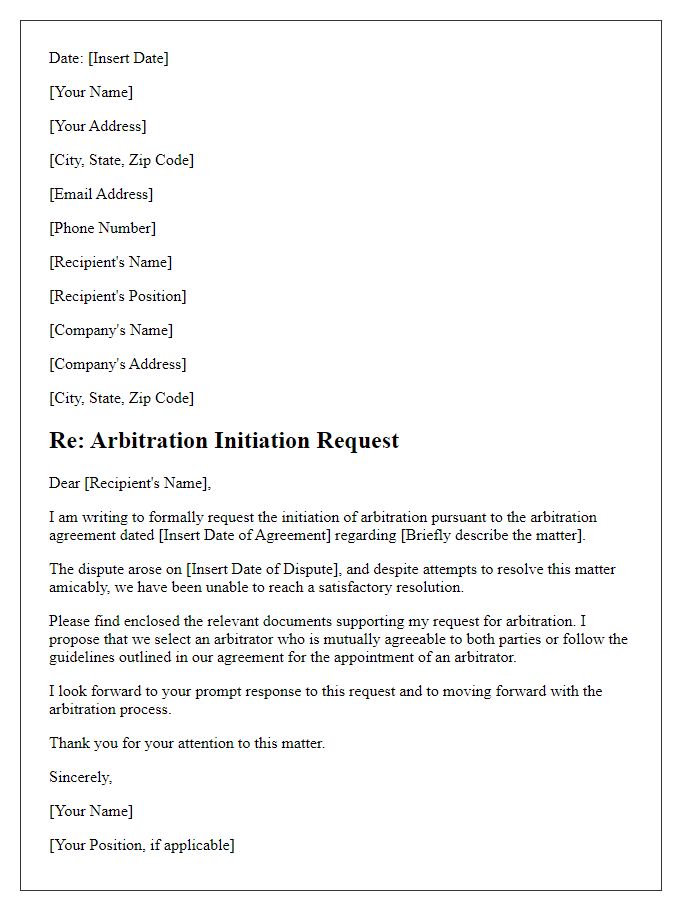
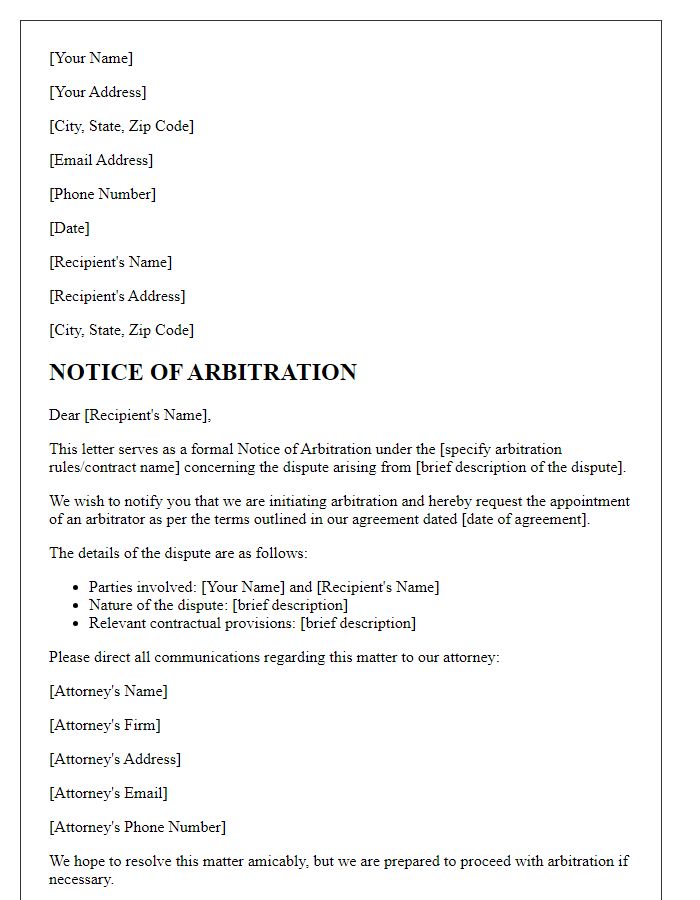
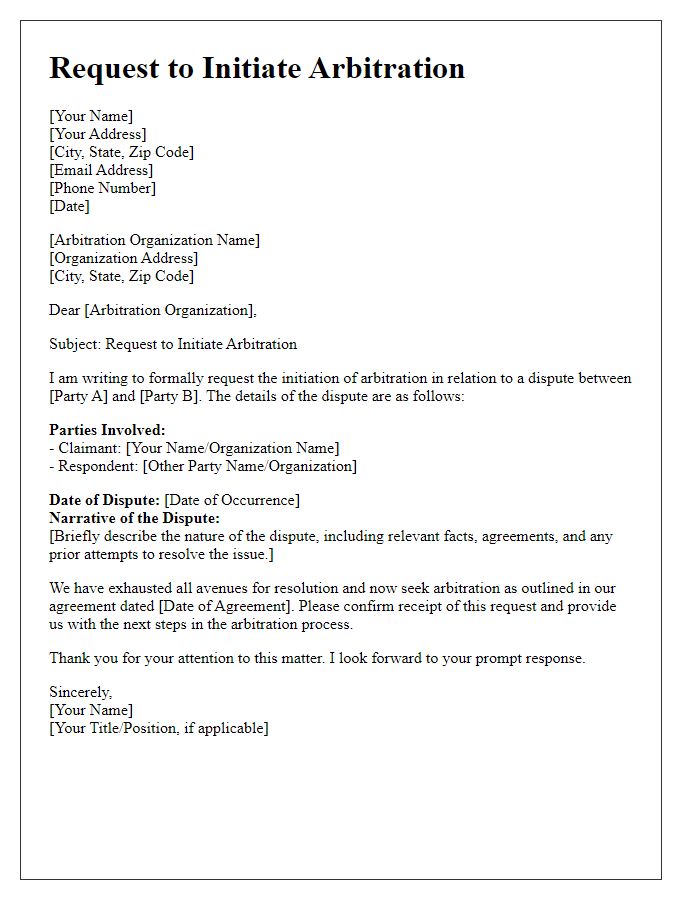
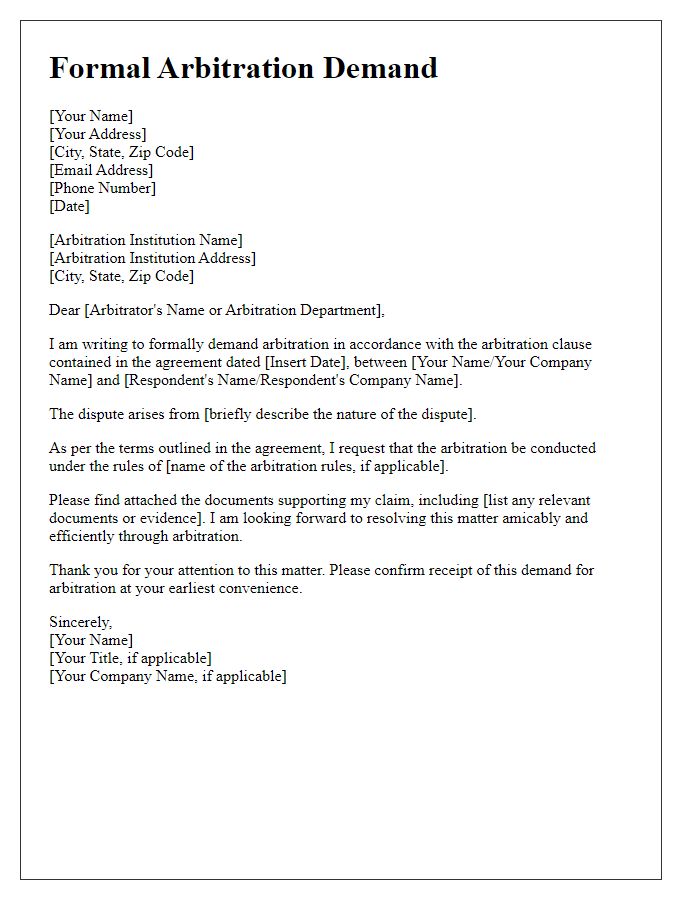
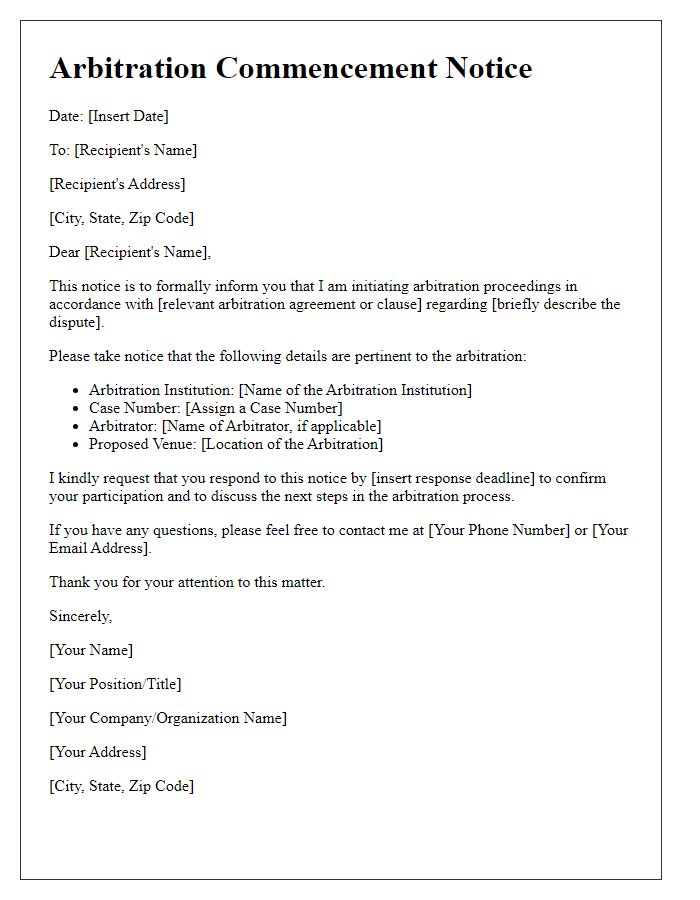
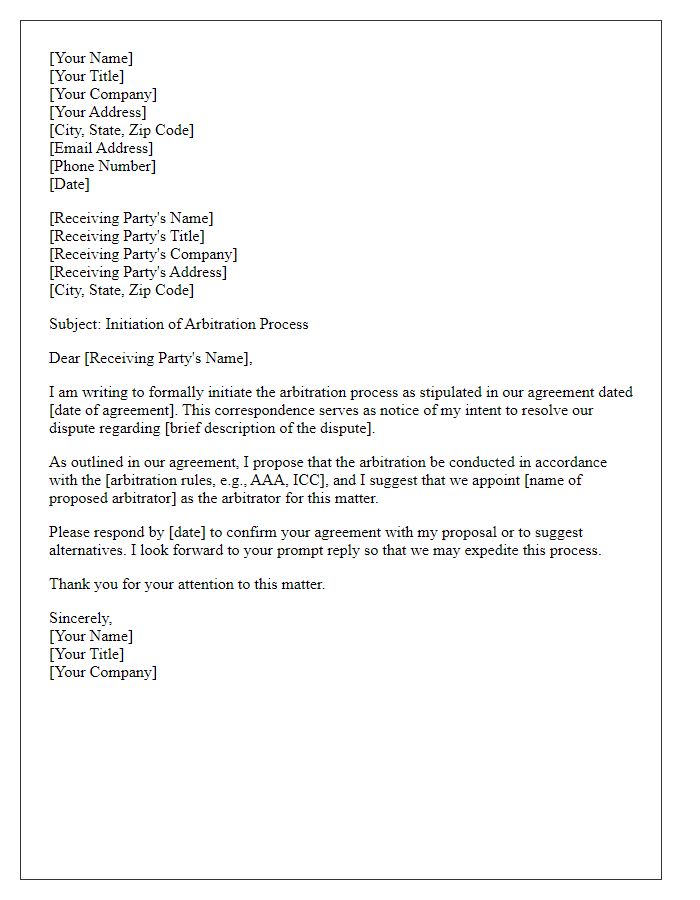
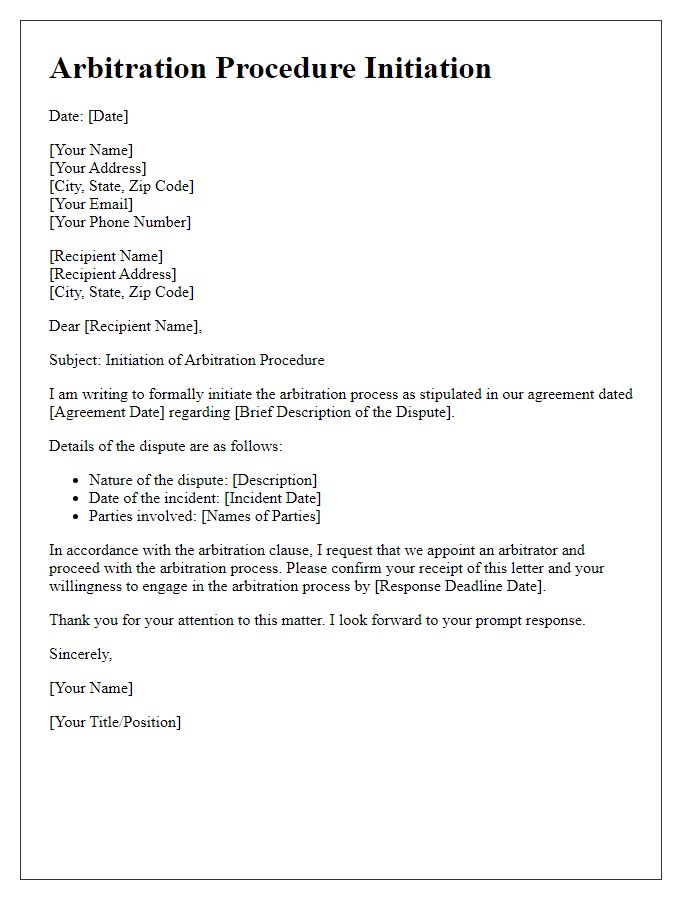
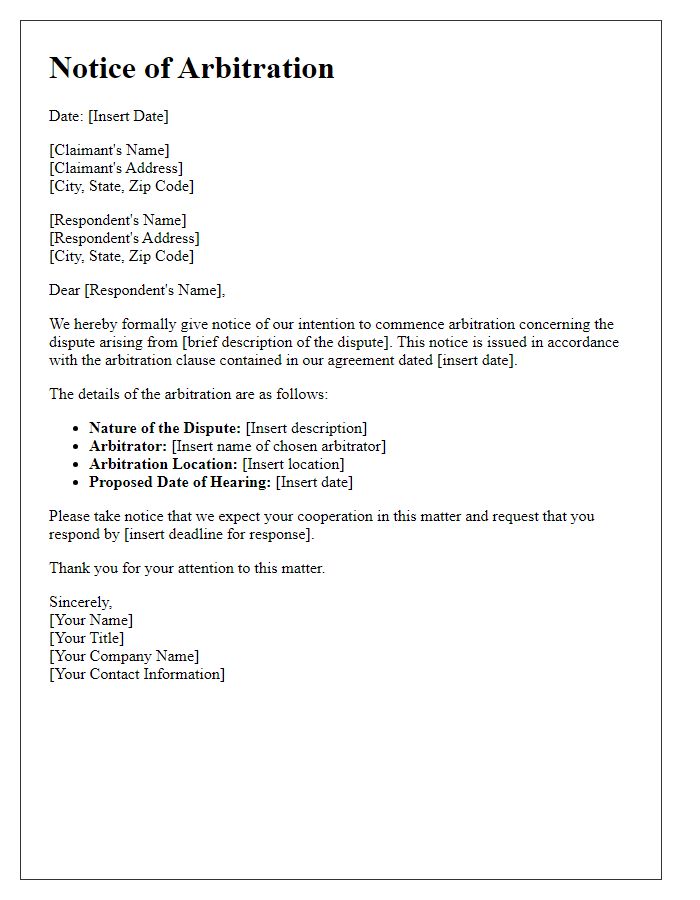
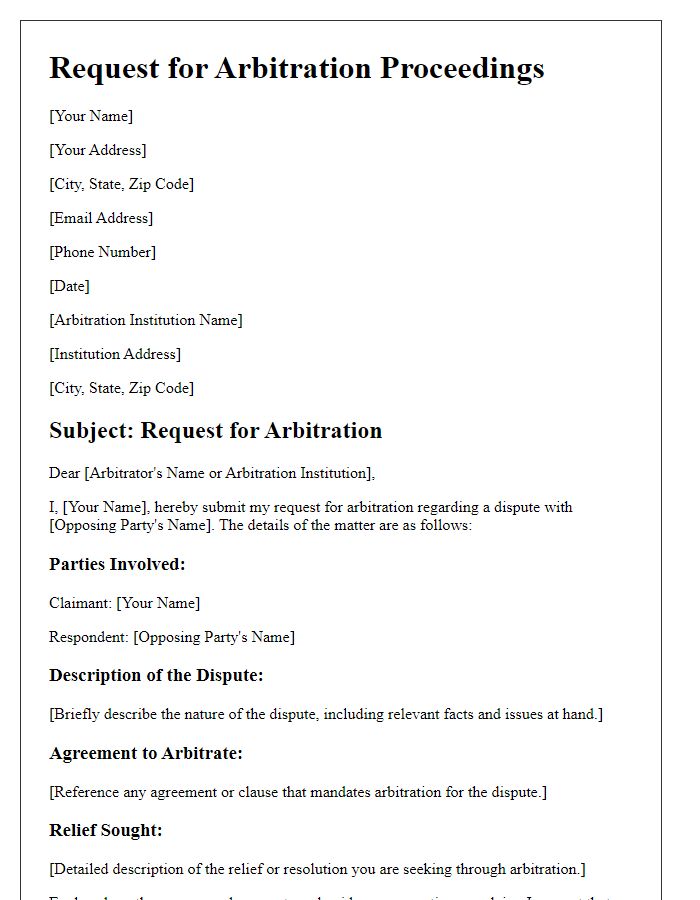
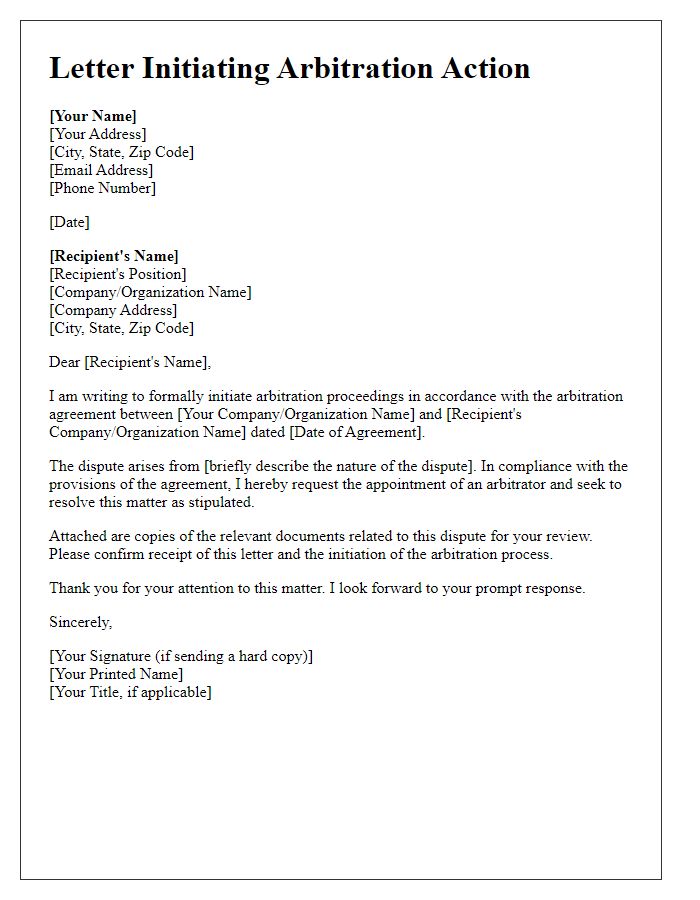


Comments